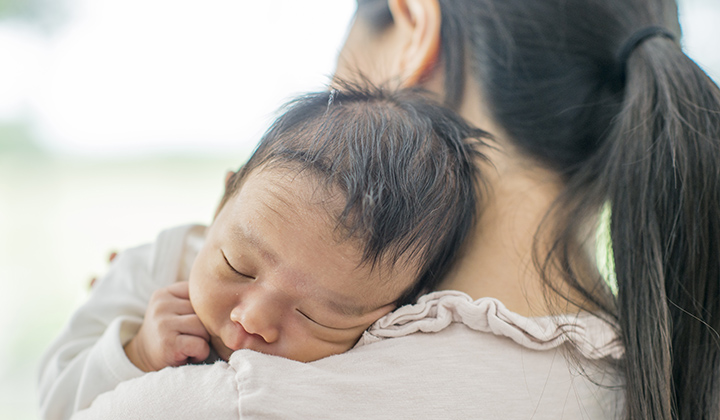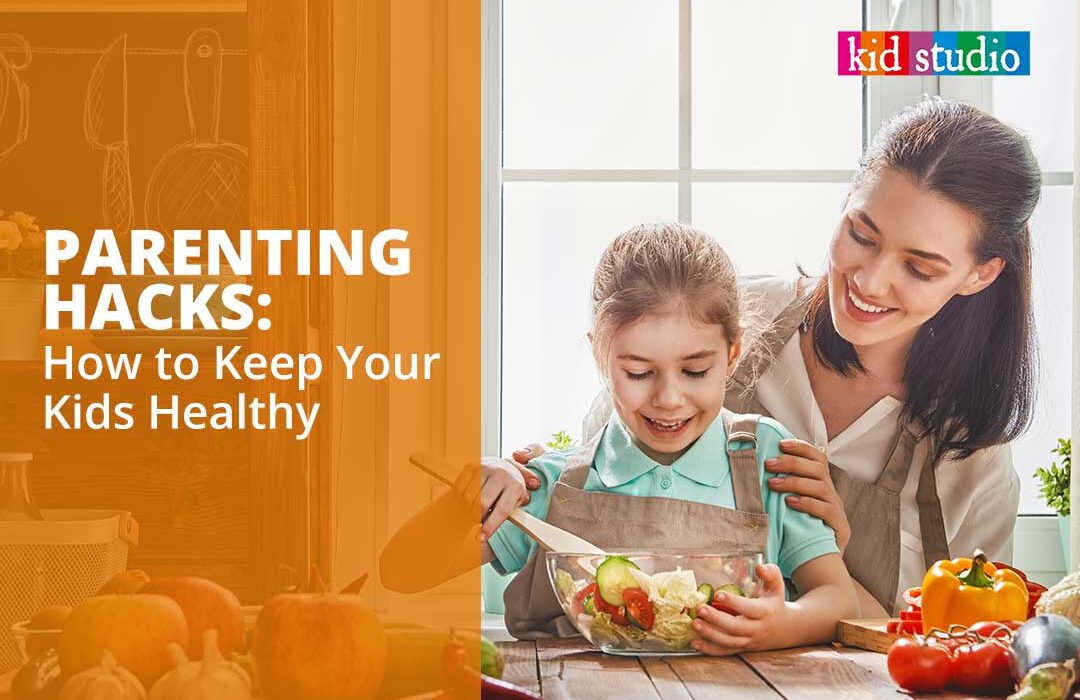Keeping kids healthy during the Covid-19 pandemic is a top concern for parents. The challenges of this time have changed daily life for families everywhere.
Parents face unique challenges today. Schools closed, playdates canceled, and routines disrupted. The pandemic has increased stress and uncertainty. Parents want to protect their children’s physical and mental health. Simple hacks can help keep kids healthy and happy. These strategies can fit easily into daily life.
They promote wellness at home, even during tough times. From fun activities to healthy meals, small changes can make a big difference. Discover practical parenting hacks that support kids’ health during this pandemic. Let’s explore how to navigate this challenging time together.
Table of Contents

Credit: www.thorn.org
Introduction To Parenting During A Pandemic
Life has changed for families during the pandemic. Kids are home more than ever. Parents face new challenges every day. Keeping kids healthy is a top priority. It is important to create a safe space.
Health guidelines change often. Staying updated is key. Follow local rules for safety. Wash hands regularly. Wear masks when needed. Keep a safe distance from others.
Staying active is important. Encourage kids to play outside. Simple games can keep them engaged. Indoor activities can also be fun. Crafts and cooking are great options.
Routine helps kids feel secure. Set regular meal times and bedtimes. This brings comfort during uncertain times. Create a family schedule that works.
Boosting Immunity In Children
Good nutrition is key to boosting immunity in children. Focus on fruits and vegetables. They provide essential vitamins. Fresh options like oranges and carrots are great.
Include whole grains in their meals. Foods like brown rice and oats help with energy. Protein is also important. Chicken, fish, and beans are good choices.
Some kids may need supplements. Talk to a doctor first. Vitamin D and zinc can be helpful.
Physical activity keeps kids healthy too. Aim for at least 30 minutes of exercise each day. Activities like walking, dancing, or playing outside are fun.
Staying active helps their bodies fight illness. Encourage them to play sports or ride bikes. Make it a family activity when possible.
Creating A Safe Home Environment
Sanitization is very important for a healthy home. Clean your home often. Use disinfectant wipes on surfaces. Focus on high-touch areas like doorknobs and light switches.
Create clean zones in your home. These are areas where everyone practices good hygiene. You can set rules for these zones. For example, remove shoes before entering. Keep kids from touching their faces.
Make handwashing a fun activity. Sing a song while washing hands. This helps kids remember to wash for at least 20 seconds. Teach them to wash hands after playing outside.
Managing Screen Time And Virtual Learning
Setting healthy boundaries for screen time is very important. Limit daily screen use to 1-2 hours. This keeps kids active and focused. Use timers to help them track time.
Incorporate educational content into their screen time. Choose shows that teach math, science, or reading. Use apps that make learning fun. Balance entertainment with learning opportunities.
Encourage kids to take breaks. Stretch, walk, or play outside. This helps them stay refreshed and engaged. Make learning a part of their daily routine.
Developing A Routine In Uncertain Times
Keeping a consistent sleep schedule helps kids feel safe. Set a fixed bedtime and wake-up time. This routine can make them sleep better. A good night’s sleep is important for health.
Balancing work and childcare is tough. Create a daily plan that includes both. Schedule time for work and time for play. Use breaks to check on your kids. Let them know when you are busy. This can help them understand your work time.
Encourage kids to play quietly when you work. Give them activities to keep them busy. Simple tasks can help them feel involved. A little planning goes a long way.
Emotional Wellness For Kids
Kids may feel anxious and stressed during this time. It is important to listen to their feelings. Talk openly about their worries. Share your own feelings too. This helps them feel understood.
Encourage your kids to express themselves. Art and writing can be great tools. Allow them to create drawings or write stories. This helps them release their emotions.
Staying connected with friends is also essential. Schedule video calls or online playdates. This helps kids feel less isolated. Encourage them to share their thoughts with friends.
Establishing a routine can help ease their minds. Regular mealtimes, study times, and play can create a sense of normalcy. Keep communication open to help them feel safe.
Telehealth And Virtual Doctor Visits
Telehealth is a great way to see a doctor. Many doctors now offer online visits. This is good for kids who need care. It saves time and keeps everyone safe.
Use online health services for simple issues. Coughs, colds, and check-ups can be done online. Talk to the doctor about your child’s symptoms. They can help you decide what to do next.
Some situations need in-person care. High fever, trouble breathing, or injuries need a doctor’s visit. If you are unsure, call your doctor. They can guide you on what to do.
Stay safe and healthy. Use telehealth wisely. Know when to go to the doctor.
Indoor Air Quality And Ventilation
Good air quality is important for kids’ health. Effective air filtration systems help remove dust and germs. HEPA filters are a great choice. They trap tiny particles in the air. Make sure to change filters regularly.
Natural ventilation techniques can also improve air quality. Open windows to let fresh air in. This helps reduce indoor pollutants. Use exhaust fans in kitchens and bathrooms. They remove moisture and odors.
Keep indoor plants, too. They can help clean the air. Be careful with too many plants. Some can cause allergies. Balance is key for a healthy home.
Outdoor Activities And Safety
Outdoor activities are great for kids. They keep children happy and healthy. Fresh air is good for everyone. Try simple games like tag or hide and seek.
Playing outside helps kids stay active. Set up a safe space for play. This can be your backyard or a park. Always keep a good distance from others. Social distancing is key to staying safe.
Plan fun family walks. Explore nature together. Look for different plants and animals. This makes learning fun and exciting. Remember, safety first!
Hygiene Education For Children
Teach children the importance of handwashing. Use fun songs to make it enjoyable. Show them how to wash their hands properly. Start with wetting their hands. Use enough soap to cover all surfaces. Scrub for at least 20 seconds. Rinse well under running water. Dry with a clean towel.
Make it a game. Use a timer to see if they can wash longer. Create fun challenges like washing before meals. Reward them with stickers for good hygiene. This helps them remember to wash regularly.
Use colorful posters that show the steps. Place these posters near sinks. Remind kids to wash their hands after playing. Emphasize washing after using the bathroom. Teach them to wash before eating.
Covid-19 Symptoms In Children
Covid-19 can show different symptoms in children. Common signs include:
- Fever or chills
- Cough that is new
- Shortness of breath or difficulty breathing
- Fatigue or tiredness
- Sore throat or headache
- Loss of taste or smell
Recognizing these early signs is very important. Check your child often. If they show any symptoms, contact a doctor. Keep track of their health at home. Note any changes in their behavior or energy levels.
Taking care of your child’s health is a priority. Keep them safe by watching for these signs. Early action can help prevent complications.
Vaccination And Children
Vaccines are very important for children. They help protect against serious diseases. Check with your doctor about vaccine eligibility. Different vaccines are for different age groups. Some kids may be eligible for the COVID-19 vaccine now.
Many parents feel unsure about vaccines. Vaccine hesitancy is common. Talk to your doctor about your concerns. They can provide clear information. Understanding the benefits can help ease fears. Vaccines keep kids safe and healthy.
Make sure to stay informed. Use trusted sources for information. Discuss vaccination with your family and friends. Sharing facts can help everyone feel better.
Mental Health Resources
Finding the right online support groups is very important. These groups help parents and kids talk about feelings. Many websites offer free groups. They provide a safe space for sharing.
Check out platforms like Facebook and Meetup. They have groups for different ages. You can connect with other parents too.
Child-friendly mental health apps are also useful. Apps like Headspace for Kids and Calm teach kids to relax. They offer fun activities for mindfulness.
These tools help kids express emotions. They also make mental health fun and engaging.
Supporting Children With Special Needs
Adjusting Individual Education Plans is very important. Each child has unique needs. It helps to focus on their strengths and challenges. Teachers can work closely with parents. This ensures everyone is on the same page.
Therapy continuity during lockdowns is crucial. Many kids rely on regular therapy sessions. Use virtual sessions to keep the support going. Online tools can help maintain progress. Simple activities can be done at home. This allows kids to stay engaged and learn.
Creative Learning At Home
DIY science projects can be fun and educational. Try making a volcano with baking soda and vinegar. Kids will love watching it erupt. Another idea is to grow crystals using sugar or salt. This project teaches patience and science.
Incorporating art into learning is important. Let kids create their own art projects. Use old magazines to make collages. Painting with watercolors can be relaxing and fun.
Music can also be a great tool. Sing songs together or learn simple instruments. Making music helps children express themselves. It can brighten up their day.
These activities keep kids engaged. They learn while having fun at home.

Credit: hbr.org
Staying Informed: Reliable Sources
Finding trustworthy news is very important. Look for official sources like health departments. Websites like the CDC or WHO offer good information. Check the date of the news. Old news may not be correct anymore.
Be careful with social media. Many posts can spread false information. Always check the facts before sharing. Ask yourself, is this from a reliable source? Use fact-checking websites. They help confirm if news is true or not.
Encourage kids to ask questions. Help them understand what is real. This builds their critical thinking skills. Teach them to think before believing everything they read.
Building A Community Support Network
Building a community is important for keeping kids healthy. Social media can help connect families. Use local groups to share tips and resources. Join online chats about health and safety. Share ideas on fun activities for kids. This helps everyone feel less alone.
Engaging in neighborhood initiatives is also helpful. Start a playgroup or organize safe events. Support each other in finding healthy food options. Share information about local resources. A strong community can make a big difference.

Credit: www.childrensmercy.org
Nutritional Recipes For Kids
Cooking with kids can be fun and easy. Here are some simple recipes to try:
- Fruit Salad: Mix chopped apples, bananas, and grapes.
- Veggie Wraps: Use whole wheat tortillas. Add hummus and fresh veggies.
- Oven-Baked Chicken: Coat chicken with olive oil and herbs. Bake until golden.
- Mini Pizzas: Use English muffins. Top with tomato sauce and cheese.
- Yogurt Parfaits: Layer yogurt, granola, and berries in a cup.
These meals are healthy and fun to make together. Kids can help with mixing and arranging. Enjoy cooking and eating delicious food!
Financial Planning During A Health Crisis
Budgeting for health expenses is very important now. Start by listing all costs. Include doctor visits, medicine, and tests. Make sure to track monthly expenses.
Look for ways to save money. Use generic medicine when possible. Check for discounts on healthcare services. Some programs help with costs.
Understanding government assistance programs can help families. Many programs offer financial support. Research local options for your area. Apply for help as needed. This support can ease financial stress during tough times.
Conclusion: Resilience In Parenting
Parenting during the pandemic has taught many important lessons. Staying flexible helps families adapt to changes. Health should always come first. Encouraging kids to wash hands often is key. Teach them to wear masks and practice social distance.
Making a daily routine is important. It gives kids a sense of normalcy. Fun activities can help ease stress. Try cooking together or doing art projects. Outdoor play is also essential for their well-being.
Reflect on what worked and what didn’t. Learn from each experience. This will help in future challenges. Building a strong support system is vital. Connect with friends and family for support.
As parents, staying positive matters. Your outlook can influence your kids. Show them how to adapt and be strong. Together, you can face whatever comes next.
Frequently Asked Questions
How Can I Keep My Kids Active At Home?
Encourage fun indoor exercises like dancing or yoga. Set up games that involve movement.
What Are Healthy Snacks For Kids During The Pandemic?
Fruits, vegetables, nuts, and yogurt are great options. They are tasty and boost health.
How Do I Ensure My Kids Stay Socially Connected?
Use video calls and online games. Schedule virtual playdates with friends and family.
What Are Fun Ways To Teach Kids About Hygiene?
Make handwashing a game. Use songs and stories to teach them about germs.
Conclusion
Keeping kids healthy during the Covid-19 pandemic requires effort. Simple habits make a big difference. Focus on balanced meals, regular exercise, and quality sleep. Encourage family time that promotes connection. Limit screen time and encourage outdoor play. Open conversations about feelings help kids cope.
Support their mental health with love and patience. These small changes can lead to happier, healthier kids. Stay positive and adapt as needed. Together, families can navigate these challenges and thrive. Your commitment to their well-being matters greatly now and in the future.







